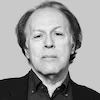Not to have been born
People take statistical probabilities for an oracle, forgetting the element of uncertainty
Once again (as so often of late) majority opinion on some matter leads me to think that the blunderer/cretin/madman must be me. Well, better only me than everyone else, on the principle of limiting the damage.
Since the actress Angelina Jolie announced that she had undergone a preventive double mastectomy, and was also thinking of having her ovaries removed, just in case those organs developed cancer, I have read nothing but praise for her decision — in Spain at least.
American opinion seems to have reacted with greater prudence. I have no more medical knowledge than the average layman. But we are told that, in view of family antecedents, there was an 87-percent chance of this happening. God forbid that I question the personal choice she made. Everyone has their own fears and priorities, and takes the measures that seem appropriate. Yet the deliberate blaze of publicity given to so drastic a solution shows that what all the praise was about, was not so much the fact of her doing this, as of the undeniable proselytizing intention - that is, implicitly preaching that others take the same step.
The line of argument boils down to this. If one of the icons of modern beauty is prepared to cut off some of her attributes, will it not encourage thousands of women, less beautiful, less rich, less popular, to take the same step? All the more so in that we live in a mimetic age, where no form of celebrity behavior does not instantly go viral.
People take statistical probabilities for an oracle, forgetting the element of uncertainty. The old communist leader Carrillo, who chain-smoked to his final day, died at 97. His photo, too, ought to be stamped on cigarette packs, because the possibility, albeit small, does exist of reaching his age healthy, and in a cloud of smoke. Probability is not certainty, and 87 percent does not condemn you to suffer breast cancer. I could not help remembering what that intellectual beacon, George W. Bush, suggested at one point in his mandate: that large areas of trees be cut down to prevent forest fires. If there are no mammary glands or ovaries, you cannot get cancer in them, but what the body does possess must serve for something. The appendix serves for nothing, but people do not preventively have their appendix out to prevent a possible appendicitis that might, with bad luck, develop into a deadly peritonitis. I am going to have my head cut off, you might say, in case I develop a brain tumor. Or your testicles at least — you can live without them. You can't live without your head, I know; sorry for the exaggerated example.
Ban everything
It seems as if many people have ceased to believe in chance and luck, and have surrendered to the fatalism of statistics. As soon as the news comes out that this or that substance is harmful, millions of individuals swear off it radically. Not to mention a food product that is, perhaps, "contaminated," or a pharmaceutical about which some doubt has been expressed. We fail to keep in mind that some of the campaigns and rumors in which we hear these things are ill-intentioned, launched by the competition, and that after a few months or years we again "discover" the good qualities of what was stigmatized and banned. Sugar was terrible for everything for a long time; now it seems it was not so bad after all. Milk was considered very healthy and essential for growth, and now, it seems, it has some undesirable consequences. Wine is anathema for some; others recommend it in moderate quantities. As the old joke goes, "living is bad for your health." The way things are going, this joke falls short of the truth. To paraphrase Madame du Deffand, the best ironclad protection against cancer and every sort of malady, accident and anxiety, is to have never been born in the first place.
Tu suscripción se está usando en otro dispositivo
¿Quieres añadir otro usuario a tu suscripción?
Si continúas leyendo en este dispositivo, no se podrá leer en el otro.
FlechaTu suscripción se está usando en otro dispositivo y solo puedes acceder a EL PAÍS desde un dispositivo a la vez.
Si quieres compartir tu cuenta, cambia tu suscripción a la modalidad Premium, así podrás añadir otro usuario. Cada uno accederá con su propia cuenta de email, lo que os permitirá personalizar vuestra experiencia en EL PAÍS.
¿Tienes una suscripción de empresa? Accede aquí para contratar más cuentas.
En el caso de no saber quién está usando tu cuenta, te recomendamos cambiar tu contraseña aquí.
Si decides continuar compartiendo tu cuenta, este mensaje se mostrará en tu dispositivo y en el de la otra persona que está usando tu cuenta de forma indefinida, afectando a tu experiencia de lectura. Puedes consultar aquí los términos y condiciones de la suscripción digital.









































